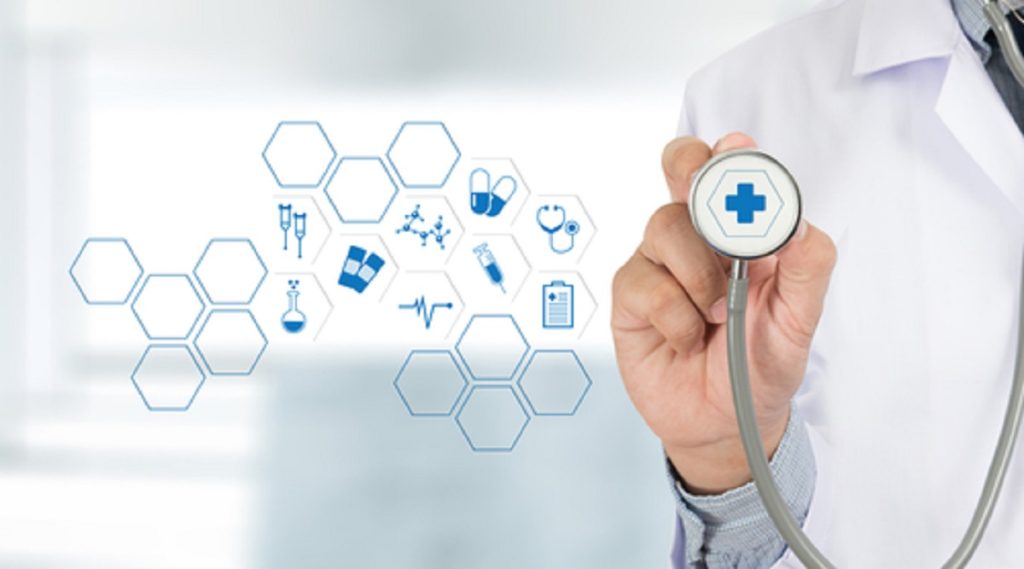- Predictive analytics uses data, algorithms, and machine learning to predict future events in healthcare.
- Telehealth technology enables patients to access healthcare services remotely. Telehealth technology improves patient outcomes, saves time, and enhances satisfaction.
- Medical equipment tracking systems allow providers to keep track of valuable medical devices.
- Wearable devices monitor health parameters for continuous patient monitoring. Wearable devices can also improve patient engagement and self-care.
- Electronic health records (EHRs) are digital versions of patient medical records that allow healthcare providers to streamline the documentation process.
In today’s world, technology is a driving force in all industries, especially in healthcare. Healthcare facilities have always been under pressure to improve patient outcomes and enhance staff performance. Therefore, innovative technologies are becoming increasingly important to improve the efficiencies of the healthcare system. In this blog, you will learn about innovative technologies that are currently being used in healthcare facilities to improve their operations.
Predictive Analytics
Predictive analytics is an innovative technology that uses data, statistical algorithms, and machine learning techniques to analyze historical data to make predictions about future events. In healthcare, predictive analytics can be used to forecast possible disease outbreaks, patient readmissions, and appointment cancellations. This technology enables healthcare providers to plan and allocate resources effectively.
Telehealth
Telehealth technology is a game-changer in the healthcare industry. It uses digital communication tools like video conferencing, remote monitoring, and electronic messaging to deliver healthcare services to patients who are unable to visit the clinic physically. It is especially beneficial for people who live in remote areas or have mobility issues. Telehealth technology improves patient outcomes, saves time, and enhances patient satisfaction.
Medical Equipment Tracking System
A medical equipment tracking system utilizes GPS technology to track the usage and location of medical equipment. This innovative technology helps healthcare providers keep a close eye on their medical equipment and ensure that it is always available when needed. It also helps reduce the risk of theft or damage to expensive medical devices.
Wearable Devices
Wearable devices are modern technologies that can be worn on the body to monitor health parameters. They have become increasingly popular in healthcare because they provide continuous monitoring of vital signs such as heart rate, blood pressure, and temperature.
This technology enables physicians to detect early signs of disease and prevent potential health problems. It also improves patient engagement and self-care by encouraging patients to keep track of their health status.
Electronic Health Records

Electronic health records (EHRs) are digital versions of patient medical records that can be accessed by healthcare providers and patients alike. EHRs streamline the documentation process, enabling faster and more reliable patient care. This technology improves the accuracy of prescribing medication, reduces paperwork, and allows for better coordination between healthcare providers.
Artificial Intelligence
Artificial intelligence is a technology that is increasingly being used in healthcare for diagnostic purposes. It uses machine learning algorithms to identify patterns in data and make predictions about future outcomes. In medicine, AI can be used in a variety of ways. Here are a few examples:
Automated diagnosis
AI can analyze patient data to detect diseases more accurately than a human doctor. Automated diagnosis has the potential to revolutionize healthcare by reducing diagnostic errors and improving patient outcomes.
Robotic surgery
AI-powered robots can perform precise, minimally invasive surgeries with greater accuracy than traditional techniques. This technology eliminates human error and reduces surgical time. Robotic surgery is especially beneficial for complex cases where traditional techniques are not effective.
Drug discovery

AI can use machine learning algorithms to identify novel compounds that have the potential to be developed into new medications. This technology can help pharmaceutical companies develop treatments faster and more cost-effectively than ever before.
Virtual health assistants
AI can assist patients by providing personalized advice, delivering reminders about appointments or medications, and answering medical questions. Virtual health assistants improve user experience and enable healthcare providers to focus on higher-level tasks.
Image analysis
AI-powered image analysis can quickly detect abnormalities in medical images. This technology could drastically reduce false positives and improve diagnostic accuracy. Image analysis can also help healthcare providers detect early signs of disease, allowing for faster and more accurate diagnoses.
By harnessing the power of AI to analyze data, healthcare facilities can improve their operations and ensure better patient outcomes.
Healthcare facilities are leveraging innovative technologies to improve operations and ensure patient outcomes. Predictive analytics, telehealth, medical equipment tracking systems, wearable devices, electronic health records (EHRs), artificial intelligence (AI), and image analysis are just a few tools used in modern healthcare settings.
By utilizing these advanced technologies, healthcare providers can reduce paperwork and human errors while improving patient satisfaction. With this new wave of technology comes an opportunity for greater efficiency within the healthcare system, ultimately leading to improved quality care for all patients.

